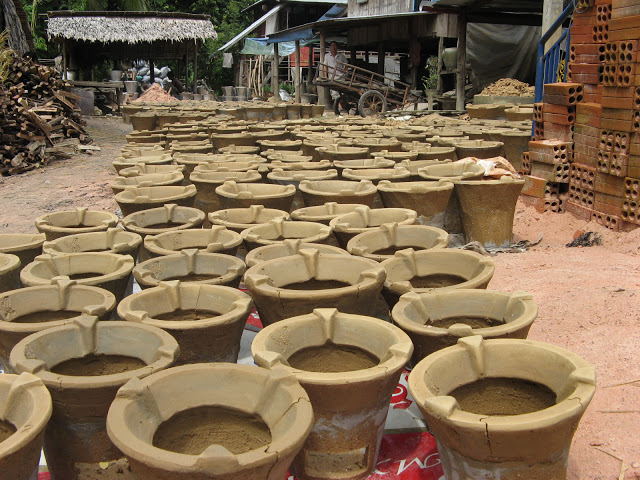When we decided to launch a home delivery service to give people more choice and flexibility there was never any doubt that we had to provide a service that wouldn’t increase the burden on the environment. We buy and eat local precisely because it reduces our food miles.
Even though there’s evidence to suggest grocery delivery services are better for the environment than us all getting into the car and driving to the local shopping district, we still felt neutralising Fair Food deliveries would help us go the extra mile, so we can all feel a little better about the food we eat and how it gets to our dinner table.
Are you curious about how we offset our organic food deliver service?

Through our partners Nexus Carbon for Development, we have teamed up with GERES Cambodia’s Lao Cookstove Project. And by purchasing carbon credits from them, we help finance the diffusion of this community driven, more carbon efficient technology that supports local economies.

The carbon credits required to offset our delivery operations will be reviewed and purchased yearly at the end of June.
More About The Project
Group Energies Renouvelables, Environnement et Solidarités (GERES), a founder Nexus member and incubator of Nexus, is facilitating and managing the manufacturing, promotion and distribution of the improved cookstove known as New Lao Stove (NLS) in Cambodia. This alternative to traditional cooking stoves has been distributed since 1999, and 1,464,625 tons of CO2-equivalent emissions were reduced from 2003-2011.
The project was initiated as part of the Cambodian Fuelwood Saving Project (CFSP), which was created to reduce the wood consumption in Cambodia in order to protect its forest resources. The project is carried out in collaboration with the Ministry of Industry Mines and Energy (MIME) of the Royal Government of Cambodia. GERES has been involved from the onset, and has been responsible for the design of the New Lao Stove (an adaptation of the Thai Bucket Stove model to the Cambodian context), the setup of the production facilities (training of existing traditional stove producers, introduction of new equipment), the introduction of the new stove to the existing distribution chains, as well as the strengthening and the structuring of the whole value chain through the creation of a producers and distributors association.
Production of cookstoves has increased in recent years, from 324,410 NLS produced in 2010, to 356,436 produced in 2011. The first quarter of 2012 alone saw 110,700 units produced, making a total of 2,000,000 cookstoves produced by the project as of the end of November 2012.
YOU CAN WATCH A SHORT VIDEO DOCUMENTARY ABOUT THE PROJECT HERE
Our Commitment
CERES Fair Food is an ethical organic food delivery service and online grocer providing Melbourne with the freshest seasonal organic fruit and vegetables, as well as health foods, sourced from local farming families and artisans who are paid a fair price for sustainably grown and made food.
CERES Fair Food has partnered with Nexus-beyond offsetting to offset the carbon emissions of its 2013 organic delivery service with the support of the New Lao Stove project developed by GERES Cambodia (Group for the Environment, Renewable Energy and Solidarity). The support to the award winning project will contribute to reduce pressure on Cambodia’s natural resources but also create income generating activities for producers and distributors of improved cookstoves in Cambodia.



